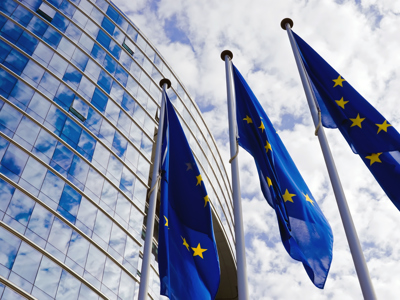
Forced labour in UK companies’ supply chains: is a UK due diligence law the answer?
Oliver Holland and Ella Cornish discuss what the UK can do to catch up with global moves to halt the import of goods manufactured by the use of forced labour.
Posted on 09 February 2022
There is an increasing awareness of the presence of forced labour within the supply chains of many global companies that are based in the UK or sell their products here.
As we reported in a previous blog, there have been efforts to make amendments to the Modern Slavery Act 2015 (MSA) but little seems to have happened since those amendments were tabled.
As we reported in our first blog in this series on supply chain accountability, the EU have tabled a draft Directive for the introduction of mandatory due diligence laws within their member states. Here we discuss further developments in other countries and highlight efforts that are being made in the UK to bring the country in line with many of its allies.
Forced labour and why is it an issue?
During the pandemic, there were multiple reports of forced labour including at latex glove producers in Malaysia run by Supermax, who won an NHS contract worth £316 million at the beginning of the pandemic and at a Malaysian palm oil producer reported to supply Nestle, Unilever and L’Oreal. In the Xianjang region in China, an estimated 1.5 million Uyghur Muslims have been placed into prison camps, and some of the world’s largest brands, such as Nike and Apple, have been linked with the use of labour from these camps. With these types of reports increasing, it is clear that there is not enough being done to prevent the abuse of workers across the globe.
The reports on allegations of forced labour make for difficult reading. Large companies are able to increase their profits by reducing the cost of labour, however it is important that legislation steps in to ensure that vulnerable people are not being exploited.
Transparency in supply chains
Although there are many commercial incentives that may keep companies from identifying their suppliers, publishing supply chain information is, according to the Clean Clothes Campaign, “a vital step in improving working conditions”. Some companies have recognised the importance of transparency and began publishing their suppliers. For example, clothing brand Patagonia publishes a list of the farms, factories, and mills within its supply chain.
In the absence of requiring companies to publish their supply chain information, governments can help improve transparency by publishing trade data for imports and exports. Unlike the UK or Europe, the United States (US) has published export and import records since 1989 through the US government agency United States International Trade Commission. Transparent trade data provides checks and balances on companies and their supply chains.
Power to ban imports of goods made using forced labour
One step the UK government could take towards reducing the prevalence of forced labour from supply chains of products sold in the UK is to provide our border agency with the power to investigate allegations of forced labour and take action to block imports where allegations are substantiated.
Since 2015, The US Customs and Border Protection Agency has been able to issue ‘Withhold Release Orders’ if they deem there is sufficient evidence that forced labour was used in the production of a product. Since September 2019, imports from five Malaysian glove companies were barred under this power. Such import bans have a significant financial impact on the companies that are subject to the ban; for example shares in Top Glove dropped by 48% following the US import ban in July 2020.
In Canada, the importing of goods made using forced labour has been prohibited following the US-Mexico-Canada Agreement in 2020. However, the government has faced criticism due to the amount of time taken to implement bans. Canada’s Border Services Agency defended their position stating that gathering sufficient evidence to prove forced labour can take up to six months. In November 2021, the first ban was introduced against Malaysian glove manufacturer Supermax.
Given the potentially huge financial consequences, the impact of import bans on companies has the potential to be a key motivator for more effective due diligence within supply chains.
Legal obligations on businesses to conduct thorough due diligence
Although the EU’s proposed Directive on Due Diligence and Corporate Accountability has already hit a significant stumbling block having been delayed after reportedly failing the European Commission’s regulatory scrutiny board, European countries have already passed legislation akin to that which would be required under the draft Directive.
For example, Germany’s Supply Chain Due Diligence Act will subject companies who fail in their duties to complete human rights and environmental due diligence to fines of up to eight million euros. Norway’s Transparency Act, due to take force in July 2022, requires companies to carry out due diligence in accordance with the Organisation for Economic Co-operation and Development’s guidelines with large financial penalties possible for companies who fail to comply. The Netherlands’ Child Labour Due Diligence Law specifically focuses on the identification and prevention of child labour within supply chains.
Outside of Europe, the US has recently implemented legislation targeting forced labour in the Uighur prison camps in China. The US’ Uyghur Forced Labor Prevention Act, coming into force this June, applies a presumption that goods produced in the Xinjiang region are not allowed entry to the US on the basis of forced labour. The presumption can be rebutted if evidence is provided to the contrary. In Canada, companies seeking to do business in the Xinjiang region are required by the Trade Commissioner Service to sign a declaration stating they are aware of the human rights situation in Xinjiang and they are aware of Canada’s probation of imports made using forced labour.
The UK’s next steps
Although the UK was one of the first countries to implement legislation tackling forced labour through the MSA, it is clear that it has fallen behind many of its peers in the introduction of effective and impactful legislation. By adopting an approach similar to Canada or the US, it will increase businesses’ responsibility to assess these risks and provide government agencies with the power to act and prevent goods made using forced labour from entering the market.
There is a growing movement in UK civil society to bring the UK up to speed with developments in Europe and North America. For example, the public service union, Unison, is demanding a human rights due diligence law for supply chains which would mandate companies and the public sector to undertake human rights due diligence in their supply chains. The proposed due diligence law would include provision for penalties where a company or public sector body failed to act, including if the abuse occurred in another country. Unison are part of a broad-based civil society coalition run by the Corporate Justice Coalition calling for the new law to prevent supply chain human rights abuses and environmental harms. As well as many NGOs and the unions, the new law is supported by some of the largest UK fashion brands including Asos, Primark and New Look.
With some European and North American countries taking the lead in providing greater transparency and accountability in their supply chains, the UK stands to be left behind. The proposed human rights and environment due diligence law would be a welcome step in the right direction.




